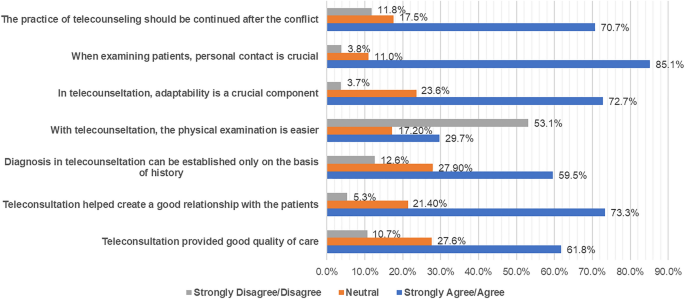




In the midst of the ongoing conflict between Israel and Hamas in Gaza, healthcare professionals are facing ethical dilemmas and challenges. Matthew K. Wynia, from the University of Colorado Center for Bioethics and Humanities, has outlined four principles for doctors in a war setting [20802426].
Wynia condemns the genocidal aims and actions of terrorist groups like Hamas, emphasizing the importance of strengthening bonds between healthcare professionals of different faiths. He questions whether Israel is doing enough to avoid civilian casualties and states that it is unethical to calculate an 'acceptable' number of children to kill. Wynia emphasizes that the primary responsibility of doctors in war is to save lives, regardless of who they are or how they have been injured [20802426].
The situation at Gaza's hospitals has reached a catastrophic level. Most hospitals are no longer functioning, and the remaining ones are likely to be overwhelmed by the expected influx of patients in the coming weeks. The World Health Organization (WHO) has described the situation as 'catastrophic' and warns of the severe damage to health services in Gaza [0eb51123].
One hospital in northern Gaza was hit by a shell, resulting in the tragic death of 12 people. Israel denies shelling the hospital, but the incident has further exacerbated the dire situation [0eb51123].
The United Nations and the International Committee for the Red Cross have been coordinating efforts to evacuate people from hospitals caught in the fighting. The WHO has led a mission to evacuate patients from Gaza's largest hospital, Shifa Hospital, which is now under the control of Israeli forces. The evacuation process is ongoing, with plans to send more teams to assist in the transfer of patients to southern Gaza [0eb51123].
The hospital situation in Gaza has become a symbol of the devastating impact of the Israeli-Palestinian conflict. The use of hospitals as shields by Hamas militants and the Israeli claims against hospitals have sparked international outrage. Critics argue that the siege and bombardment of Gaza amount to collective punishment of Palestinians [0eb51123].
Amidst the conflict, the Israeli military has interrogated over 300 members of Hamas and other militant groups arrested in Gaza, leading to the discovery of underground tunnels and weapons [0eb51123].
In an effort to address the health crisis, Jordan has announced plans to build a hospital in southern Gaza [0eb51123].
The international community is also taking action. The prime ministers of Spain and Belgium are set to visit Israel and the Palestinian territories to discuss the protection of civilians, the release of hostages, and a lasting political solution [0eb51123].
The situation in Gaza is not limited to the healthcare crisis. Japan has condemned the hijacking of a Japanese-operated cargo ship by Yemen's Houthi rebels, and families of Israeli hostages in Gaza are pleading with lawmakers not to advance legislation that would permit the death penalty for convicted Palestinian militants [0eb51123].
This tragic event highlights the immense toll that war takes on healthcare facilities and the vulnerable patients who rely on them. It also underscores the urgent need for a peaceful resolution to the conflict in the Middle East.
In Sudan, amidst the recent conflict, a study was conducted to assess Sudanese doctors' teleconsultation experience, perception, and concerns. The study enrolled 2463 clinicians from 17 different specialties, and the majority of clinicians had less than 5 years of work experience. Voice call was the most frequent platform used for teleconsultation during the conflict, and most clinicians agreed that teleconsultations created a trusted patient-physician relationship and provided good-quality care. However, concerns were raised about incomplete information, missed diagnosis, medicolegal problems, and prescription errors that could arise with teleconsultations. Despite these concerns, most respondents emphasized the importance of continuing to offer teleconsultation even after the war abated. The study recommends upscaling telemedicine interventions, including teleconsultations, at the national level in Sudan [51d6ff2c].
Dr. Feroze Sidhwa, a trauma surgeon from California, volunteered at the Gaza European Hospital in Khan Younis, Gaza. He treated patients with shrapnel injuries, burns, and other trauma resulting from explosions. The hospital was overwhelmed with patients, and resources were scarce. Dr. Sidhwa performed surgeries on patients with bullet wounds, post-explosive injuries, and diabetic coma. He encountered filthy living conditions and a tent city with inadequate facilities. The hospital's ICUs were filled with head injuries, long-bone fractures, and diabetic patients. The emergency room saw a steady stream of trauma cases, including mass casualty events involving women and children. Dr. Sidhwa faced challenges in finding patients and getting surgical time due to overwhelmed staff and lost communication. Despite the increasing bombardments, he continued to operate and treat patients. The article emphasizes the difference between war surgery and peace surgery, highlighting the complexity and long road to recovery for war-wounded patients [45f09c70].
Patients in Gaza's hospitals are dying from infections due to a lack of protective gear and soap. American doctors and nurses who recently returned from Gaza are spreading awareness about the dire situation and urging Israel to allow in more life-saving supplies. Adam Hamawy, a former US army combat surgeon, emphasizes the need for humanitarian aid and the importance of open borders to facilitate its delivery. Hamawy describes the high level of civilian casualties, particularly among children, and emphasizes that this issue transcends political views [7a4910d7].